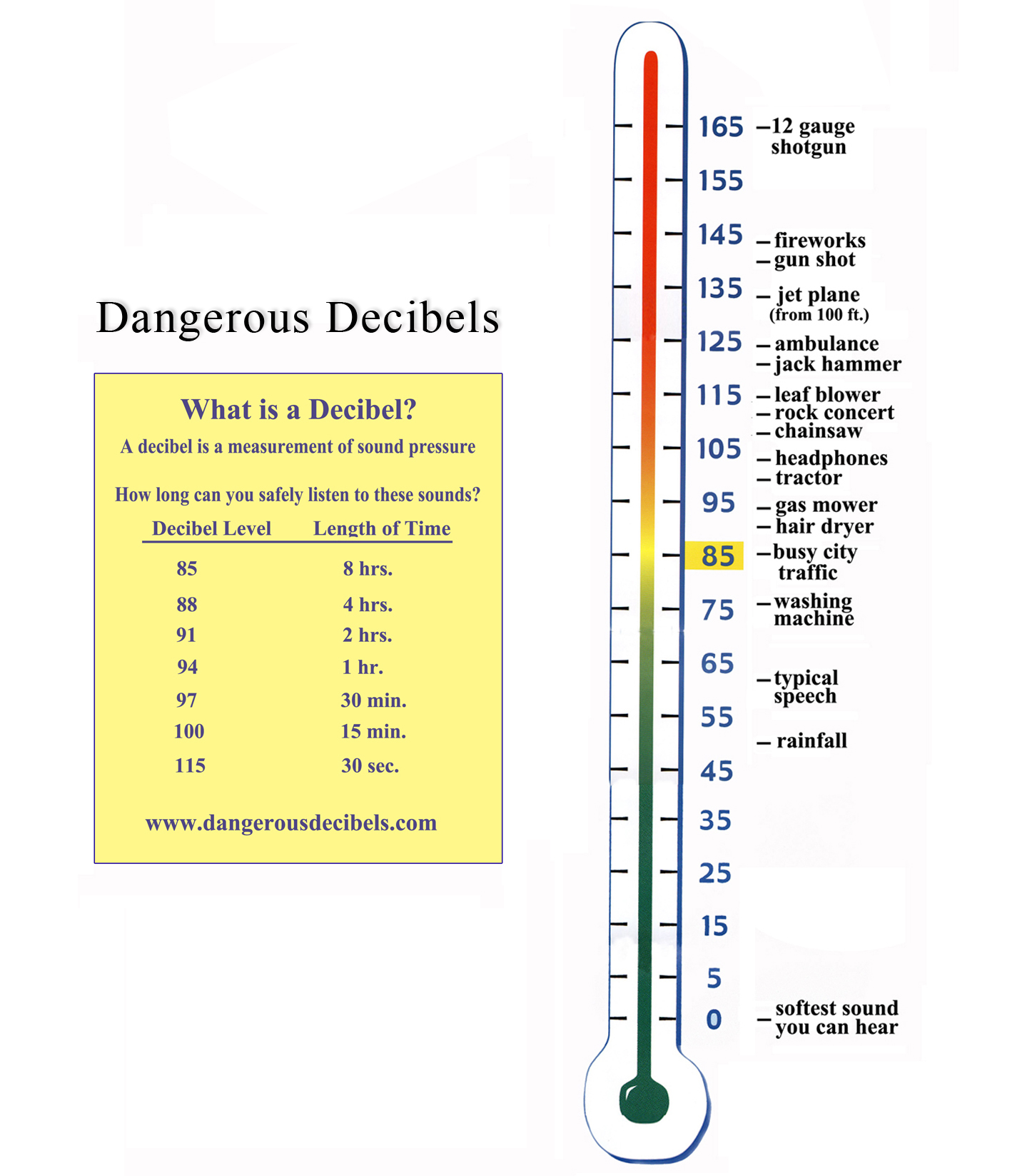
The loudness of sound is measured in decibels (dB). A common scale is from 0 dB, the threshold of human hearing, to 140dB, the sound intensity of a gun shot. Exposure to sounds at or above 85dB can cause gradual hearing loss.
The risk of hearing damage depends on the duration and intensity of exposure. For example, a person exposed to traffic at 85dB for eight hours can have the same risk as someone using a power tool or riding a snowmobile for only a few minutes.
- One out of five U.S. teenagers has hearing loss due to exposure to high noise levels by the age of 19.
- Noise-induced hearing loss is irreversible; symptoms may be temporary, but the damage is permanent.
- More than 50% of U.S high school students have reported at least one symptom of hearing loss, such as ringing in ears.
- Symptoms of hearing loss and warning signs:
(See an audiologist or ENT -ear, nose and throat doctor –if symptoms persist for more than 24 hours.)
-Sounds are suddenly distorted or muffled and hard to understand.
-You have difficulty understanding speech in loud environments.
-Your ears hurt after being in a loud environment
-You experience ringing or buzzing in your ears (Tinnitus)
-You experience an abrupt supersensitivity to noise.
- Most teenagers and their parents are unaware of which decibel levels are dangerous.
- Sound levels at rock concerts can reach as high as 110 decibels or more. At 110 decibels, hearing loss begins in less than 4 minutes.
- Many teenagers are damaging their hearing by listening to ipods and other devices at dangerously high sound levels, especially when they want to tune out their surrounding environment.
- Crowd noise at professional athletic events – soccer, football, basketball, hockey, etc.-often reaches dangerous levels. Most young children, teenagers, and their parents wear no protection.
- Speaking to friends above background music in noisy restaurants can damage your hearing.
- Hearing loss can occur instantly by a single exposure to extremely high sound, such as a gun shot. Noise-induced hearing loss usually occurs gradually and doesn’t show up for many years.
Noise induced hearing loss is preventable.





